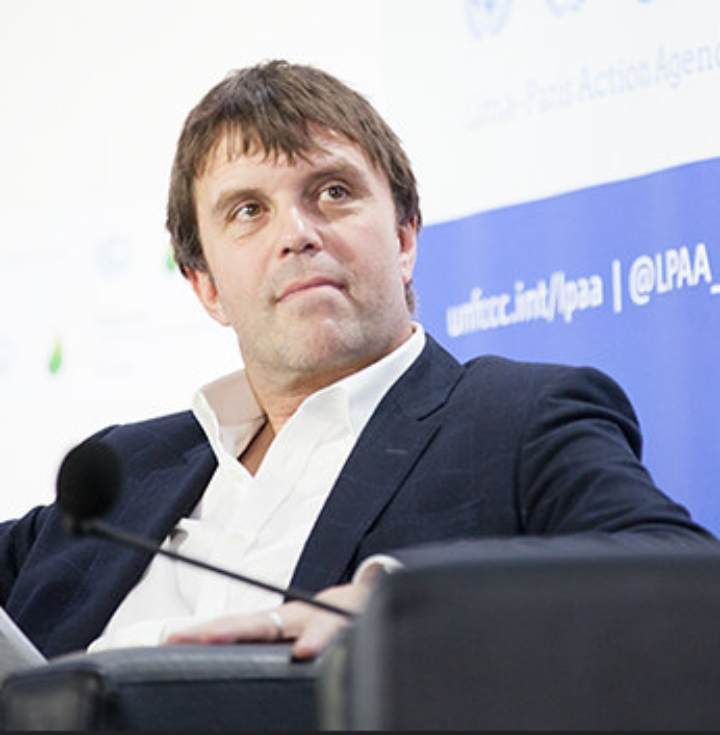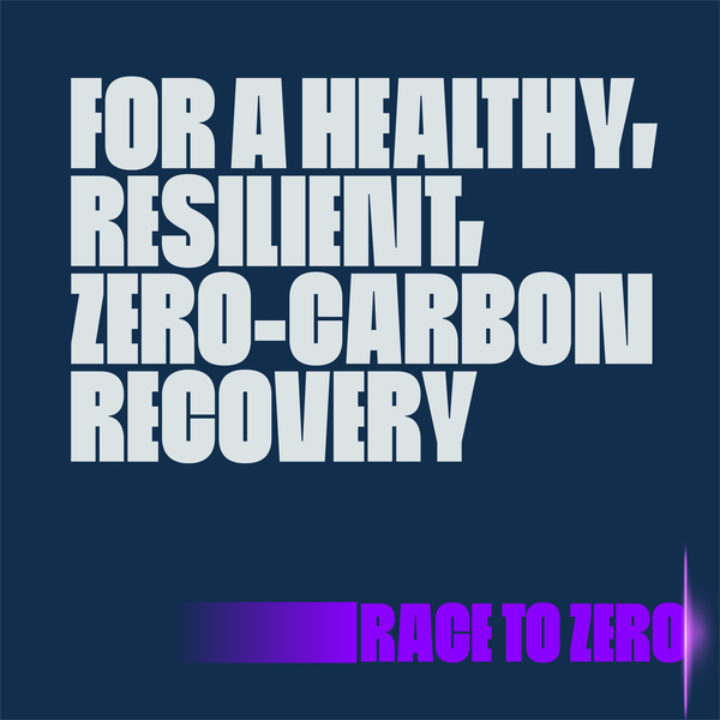Paris promised us a healthier world, and now it’s time to deliver
Nigel Topping explains why now is the time to deliver on the Paris Agreement and embark on the Race to Zero
By Kathy Grenville
Share
Last updated:

Half of global GDP, a quarter of carbon dioxide emissions and 2.6 billion people are now covered by commitments to create a healthier, more resilient, emissions-free economy in the 2040s.
That is enormous, especially as it comes in the midst of the human and economic tragedy brought on by Covid-19.
It tells us that cities, multinational conglomerates, small and medium enterprises, universities and investors around the world see the duty and opportunity to revive the economy in a way that is fairer and more sustainable — and they’re doing it.
On Friday, my COP25 counterpart Gonzalo Muñoz and I launched the Race to Zero campaign, mobilising a wide and unlikely alliance of businesses, local leaders, investors and others committed to reaching zero emissions in the 2040s.
The Race to Zero builds on the momentum created by initiatives such as the UN Net Zero Asset Owner Alliance, Business Ambition for 1.5°C, the Under2Coalition and the Climate Ambition Alliance launched at COP25 last December. Our membership has grown by two-thirds since COP25, and we aim to multiply it by 10 in time for Glasgow in November 2021.
In doing so, the Race to Zero will send a resounding message to national
leaders: we are already moving towards a resilient and zero-emissions
economy, with clear economic and public support.
Now we need governments to accelerate that shift by strengthening their climate action this decade and aiming for net zero by mid-century.
As Mark Carney, finance adviser for COP26, pointed out at our launch event on Friday, it’s much cheaper to deal with systemic risks upfront and mitigate them, than to wish them away.
The Covid-19 crisis has brought us face to face with long-standing systemic risks, from poorly funded health care systems, to air pollution that causes underlying health problems, to the encroachment on nature that exposes us to new viruses.
In rebuilding, every government, every business and every investor now has the opportunity to set out a new strategy that tackles systemic risks and makes us more resilient to shocks such as pandemics, floods, droughts or extreme heat.
Luckily, the roadmap for that healthier world already exists: the 2015 Paris Agreement. It sets the final goal of reaching net zero emissions, and the pit stops where, every five years starting in 2020, we come together to assess progress and raise efforts. Race to Zero members will follow that Paris rhythm of interim targets and reporting, as set out in minimum criteria created by Oxford University.
Anyone can join this race, as long as they are ambitious and honour the Paris Agreement.
Engineering giant Roll-Royce set an impressive example, announcing a new goal on Friday to cut carbon emissions from its operations to net zero by 2030 and help the sectors in which it operates reach net zero by 2050, by developing new products and technologies. That includes some of the hardest-to-abate sectors, like aviation, shipping, rail and power generation.

But SMEs have an important role to play too. The majority of the economy is made up for small and medium companies, and they’re the ones that can often respond to change quickly and agilely.
The International Chamber of Commerce and Exponential Roadmap announced on Friday they are developing a platform that helps small and medium enterprises build business resilience, with climate action tools and financial resources.
Governments can support this kind of ambition by setting the right recovery and structural frameworks, as recommended by groups such as the Energy Transitions Commission, We Mean Business and C40.
If they don’t, they will miss the opportunities offered by new technologies, innovation and improved health and resilience.
Because, as Dr. Maria Neira, the World Health Organization’s director of public health, said on Friday, the race to zero emissions is also the race to zero deaths.
Around 7 million people die prematurely every year from air pollution, plus many more from the extreme weather, land loss and illness fuelled by climate change. Reducing emissions saves lives, as well as taxpayer money.
The private and social costs from the impacts of pollution, including to health, is estimated to raise the value of fossil fuel subsidies to more than $5 trillion per year, well above the $400 billion in direct taxpayer spend, according to the International Monetary Fund.
The Paris Agreement gave us the promise of a healthier world, with zero premature deaths from dirty air, where nature and biodiversity protect us, and taxpayer money supports sustainable jobs and industries.
It’s time to deliver on that promise, by embarking on the Race to Zero.
Share